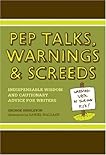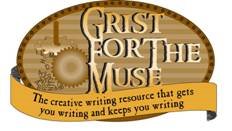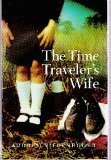 Pep Talks, Warnings, And Screeds: Indispensable Wisdom And Cautionary Advice For Writers
Pep Talks, Warnings, And Screeds: Indispensable Wisdom And Cautionary Advice For Writers by
George Singleton My review
rating: 2 of 5 stars
Maybe I just need to get out of the review of writing books game. This one is nothing new really. A prolific writer of fiction who has taught at all levels of education tells us the wise things that he’s learned by both through his work and teaching of how to work to others.
It is loosely organized into three sections entitled Pep Talks, Warnings and Screeds. But the advice really doesn’t strictly fall into the category in which it is organized.
Each tidbit of advice is just a paragraph or two long (which is what attracted me to the book in the first place). I no longer can tell if I didn’t like it because a lot of the advice I saw was commonplace: Write down your ideas or you’ll forget them; take it easy on the exclamation points; don’t rely only on spell check; etc; or because that some of the ideas were unclear and confusing, or simply didn’t make sense. Singleton loves putting stuff on your writing desk that he calls: essential tools. Some of the things that he suggests that you put on your desk to remind you about various aspects of writing: a wrench, a micrometer, a pet rock, a whetstone, a compass, a can of WD-40, paddleball, swizzle stick, sponge, hand sanitizer, a 3 pack of flints, a grappling hook, a spinning top, a cow, a glass eye… you get the picture. Doesn’t leave much room on the desktop for paper, pens, or a laptop does it? Each item is supposed to constantly remind you of a writing lesson: sponges, to remind you to soak up everything around you for your stories… images, conversations, mannerisms, etc. A cow reminds you to rewrite and rewrite again, much like a cow chews and re-chews its cud.
I like the author’s tone within the book. It just doesn’t seem to be consistent or (a lot of times) provides helpful advice in clear language. It seems as if he hides behind his cleverness from time to time and forgetting the point he was trying to make.
It is an OK book that I wouldn’t recommend for beginning writers or advanced ones who have a good understanding of the writing and publishing process. So if you are somewhere in between, you might find some useful info within this book. If just one of these paragraphs gives you a unique perspective on a problem that has challenged you, then it has done its job well.
View all my reviews.

 ght - The light emanating from the leg lamp was glorious (Noun).
ght - The light emanating from the leg lamp was glorious (Noun).








